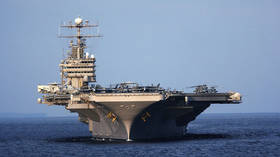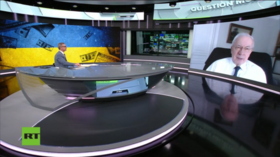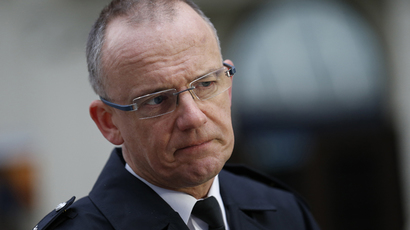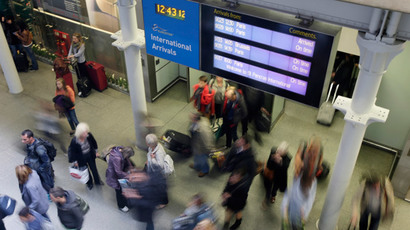Terrorist attack in Britain ‘inevitable’ – security chiefs
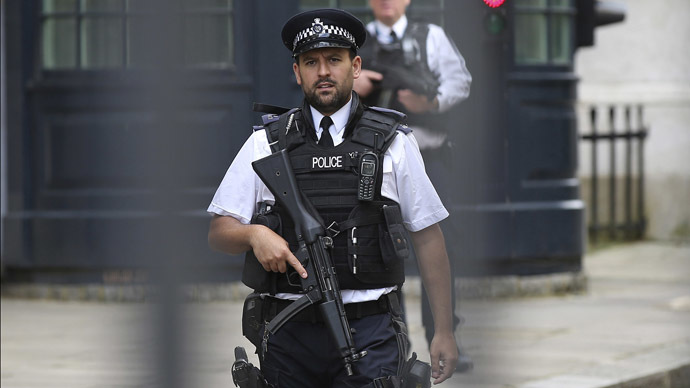
Levels of terrorist activity in Britain are so acute an attack is “almost inevitable” in the coming months, top security personnel have warned parliament.
Ministers are reportedly subject to daily updates on suspected terrorist activity, in the wake of what security officials say is a markedly increased terror threat since the formation of Islamic State (also known as ISIS, or ISIL).
As the West continues to launch airstrikes in crisis-ridden Syria, the terror group has ramped up its efforts to encourage its followers in Britain to engage in retaliatory terrorist attacks.
Scotland Yard and MI5 say they have intercepted three separate plots in London in the past 12 weeks alone. Two of the emergency raids were conducted against suspected terrorists who were allegedly preparing to carry out such attacks.
Security was especially high for Remembrance Sunday, particularly in Whitehall, where scores of armed police gathered as ceremonial events played out.
Read more:UK police get 7 days to question Remembrance Day terror plot suspects
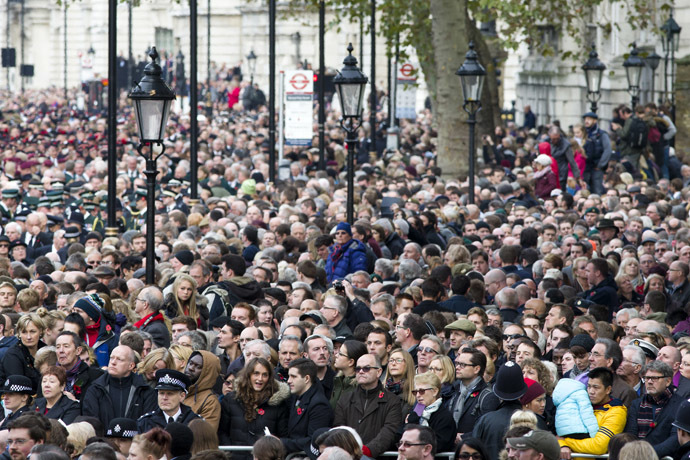
Following arrests on Thursday and Friday during two separate raids in Buckinghamshire and West London, four young men aged between 19 and 27 are currently being interrogated by police.
The raids were sparked by intelligence that a terrorist attack involving bladed weaponry was in the final phase of planning. Sources told The Times that the Queen was not the target of this alleged plot, but acknowledged the close proximity to Remembrance events scheduled for Sunday posed a serious concern.
In October, five British men accused of planning a terrorist armed attack on a Metropolitan Police official were charged. The men were also accused of having sworn allegiance to Islamic State.
Meanwhile, in August a man was arrested in East London in possession of a hammer and a knife wrapped in a black Islamic flag.
Concerns are rising among Britain’s top security officials that their previous understanding about the country’s most dangerous extremists is no longer valid. A new breed of volatile extremists radicalized by ongoing tensions in Syria has surfaced, they warn.
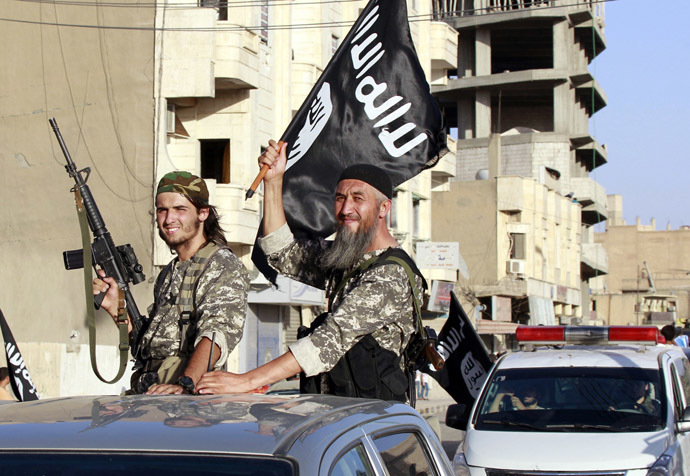
Of an estimated 600 jihadist Britons, approximately 300 are recent additions to the state’s intelligence services radar. Three hundred are believed to have returned from war-torn Syria, with their movements being closely monitored by security agencies.
One security services source told The Times that Britain faces an increased threat of terrorist attacks, as the brutal murder of British soldier Lee Rigby in London last year taught violent extremists that in contrast to complex Al-Qaeda-type bombings, high-impact attacks could be carried out with nothing more than “a kitchen knife and a mobile phone.”
Despite the increased threat of terrorism, General Sir Nicholas Houghton, head of the British armed forces, told the BBC that people should not alter their day-to-day lives.
Houghton added the threat to Britain from global terrorist groups is an “enduring one,” and the ongoing US-led military campaign to destroy ISIS could “take a long time.”
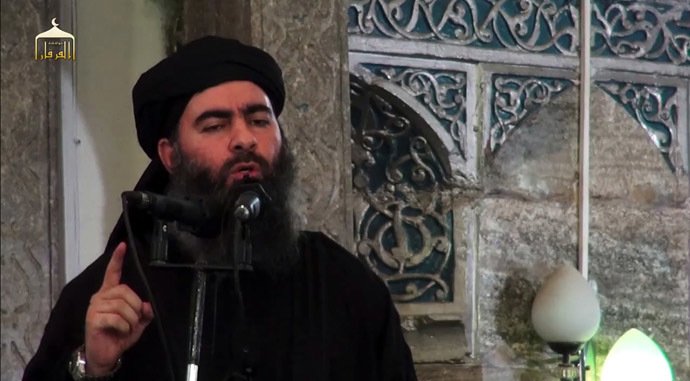
Unconfirmed reports surfaced at the weekend suggesting that the leader of ISIS, Abu Bakr al-Baghdadi, was critically wounded or killed in a US aerial attack on a convoy in Iraq.
But Houghton said whether the reports were accurate or not, the loss of Islamic State’s leader would not signal an end to the terrorist group, nor any diminished threat to western states.
“What I wouldn’t want to do is rush to the sense that the potential death of one of their totemic leaders is going to create some strategic reverse in ISIS. They will regenerate leadership.”
In August, MI5 raised the UK terrorist threat level to “severe,” the second highest out of five grades, meaning that an attack is “highly likely.”
More than 220 suspected terrorists have been arrested in the UK so far this year, according to the Home Office.


